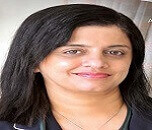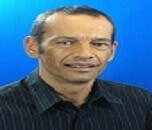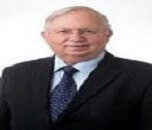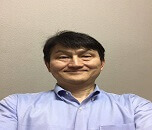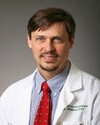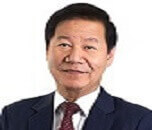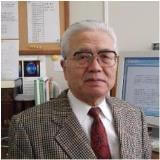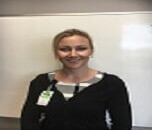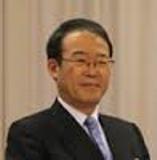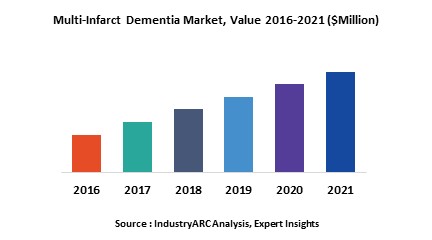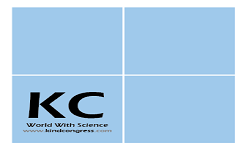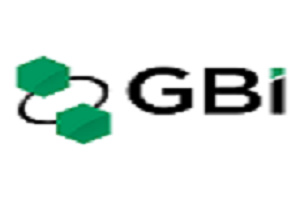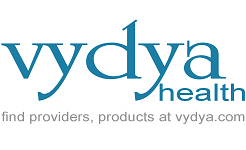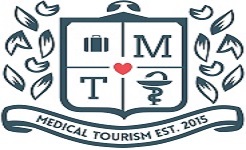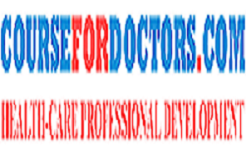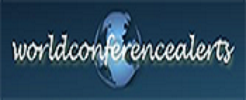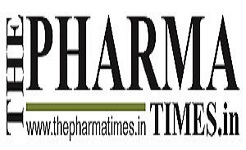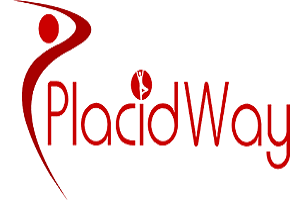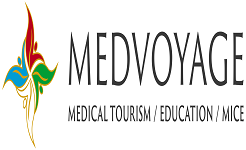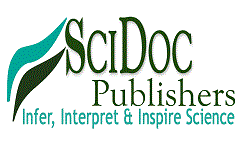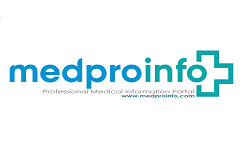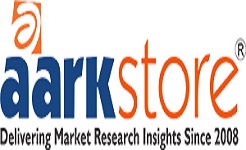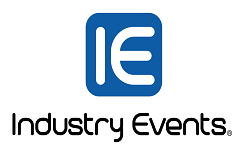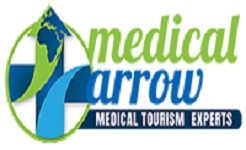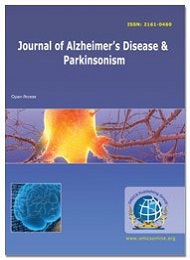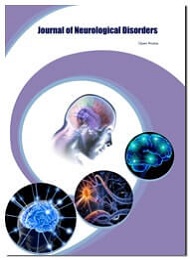Theme: New Scientific Discoveries and Technologies in Dementia Research
Euro Dementia Congress 2020
ConferenceSeries LLC Ltd invites every one throughout the world to attend the “17th World Congress on Dementia & Alzheimer’s Disease” during December 11, 2020 at Vienna, Austria which includes Keynote speeches, Oral talks, Poster presentations, and Exhibitions.
Summary:
Neuroscience is the logical investigation of the sensory system. It is a multidisciplinary part of science that joins physiology, life structures, atomic science, Dementia, formative science, cytology, numerical displaying and brain science to comprehend the central and eminent properties of neurons and neural circuits. Neurologic disorders involve the spinal column or nerves, brain. The most common neurological disorders are Dementia and Alzheimer's.
Euro Dementia Congress 2020 is honoured and delighted to welcome the Scientists, Neurologists, Neuro-physicians, Critical Care Specialists, Doctors, eminent professors, researchers, students, delegates and experts from all over the world to attend our conference. The conference is based on the theme “New Scientific Discoveries and Technologies in Dementia Research”, which will provide a global networking platform for all the attendees.
Importance & Scope:
Dementia is a general term that depicts a social affair of reactions, for instance, loss of memory, judgment, tongue, complex motor capacities, and other insightful limit caused by the enduring mischief or going of the cerebrum's nerve cells, or neurons. Dementia, including Alzheimer's disease, is one of the best overall general prosperity challenges standing up to our period.
All around, eventual outcomes of a current meta-examination prescribe that 44 million people lived with dementia worldwide in 2010, with numbers foreseen that would twofold at standard interims, to 65.7 million of each 2030 and 115.4 million out of 2050. In 2010, 58 percent shockingly with dementia lived in countries with low or focus compensation, with this degree predicted to rise to 63 percent in 2030 and 71 percent in 2050. This number is depended upon to twofold by 2030 and more than triple by 2050 to 115 million.
In the United States alone, experts gage that upwards of five million people age 65 and more settled experience the evil impacts of Alzheimer's affliction The AD advertise has an absence of helpful alternatives. Which classes of medication overwhelm the market?
What is new?
Alzheimer's and dementia joins overall members of workshops, locations, symposia, including an enlistment area, a refreshment break, and festive lunch. Neurologist Neurosurgeons, Psychiatrist, Neuroscientist can join the Conference series as a worldwide part to get refunds on selection. So come and join driving authorities and brought together specialists from December 11, 2020 at Vienna, Austria to remain mindful of the rapidly stimulating pace of advance that is starting at now influencing the field of Dementia and Alzheimer’s.
Why to Attend?
Dementia and Alzheimer's is a stand-out exchange to join generally perceived scholastics in the field of neuroscience and neurology, Brain researchers, health professionals, neurosurgeons, general prosperity specialists, scientists, academic analysts, industry examiners, analysts to exchange about best in class research and advances. Purpose of this gathering is to engage new musings for treatment that will be beneficial over the scope of Brain Disorders. A Unique Opportunity for Advertisers and Sponsors at this International event.
With members from around the world focused on learning about Dementia & Alzheimer’s disesases, this is your single best opportunity to reach the largest assemblage of participants from all over the globe. Conduct demonstrations, distribute information, meet with the current and potential customers, make a splash with a new product line, and receive name recognition at this 2-day event.
Benefits:
• Accepted journals will be published in Journal of Neuroscience and provided with DOI
• Global Networking: in transferring and exchanging ideas
• A Unique opportunity for Advertisers and Sponsors at this International event
Target Audience:
• Neurologists and Directors
• Physicians
• Neuroscientists
• Specialists
• Researchers
• Healthcare professionals
• Professors
• Industrial Experts
• Neurosurgeons
• Psychiatrist
• Nutritional Scientists
• Lecturers and Students from Academia in the study of Dementia
• Students from Academia in the research of Neurology
• Neuro Physiotherapists
Track 1: Dementia
Dementia is the name for a gathering of indications brought about by scatters that influence the mind. It's anything but a particular illness. Individuals with dementia will most likely be unable to think alright to do typical exercises, for example, getting dressed or eating. They may lose their capacity to tackle issues or control their feelings. Their characters may change. They may wind up unsettled or see things that are not there. Memory misfortune is a typical side effect of dementia. Be that as it may, memory misfortune without anyone else's input does not mean you have dementia. Individuals with dementia have significant issues with at least two cerebrum capacities, for example, memory and language. In spite of the fact that dementia is basic in all respects old individuals, it isn't a piece of typical maturing.
Recommended: Dementia conferences | Alzheimer’s conferences | Vascular Dementia conferences | Neurology conferences | Neuro Disorders conferences | Neuroscience conferences | Alzheimer’s Dementia conferences | Alzheimer’s disease conferences | Neurological Disorders conferences | Dementia congress | Dementia conferences 2020 USA | Dementia conferences 2020 Europe | Dementia conferences 2020 Asia Pacific
Track 2: Alzheimer’s disease
Alzheimer's disease (AD) is the most widely recognized type of dementia among more established individuals. Dementia is a cerebrum issue that truly influences an individual's capacity to do day by day exercises. Promotion starts gradually. It initially includes the pieces of the mind that control thought, memory and language. Individuals with AD may experience difficulty recalling things that happened as of late or names of individuals they know. In AD, after some time, side effects deteriorate. Individuals may not perceive relatives. They may experience difficulty talking, perusing or composing. They may overlook how to brush their teeth or brush their hair. Later on, they may end up on edge or forceful, or meander far from home. In the end, they need all out consideration. This can cause extraordinary worry for relatives who must think about them. No treatment can stop the ailment. Be that as it may, a few medications may help shield indications from deteriorating temporarily.
Recommended: Dementia conferences | Alzheimer’s conferences | Vascular Dementia conferences | Neurology conferences | Neuro Disorders conferences | Neuroscience conferences | Alzheimer’s Dementia conferences | Alzheimer’s disease conferences | Neurological Disorders conferences | Dementia congress | Dementia conferences 2020 USA | Dementia conferences 2020 Europe | Dementia conferences 2020 Asia Pacific
Track 3: Dementia Lewy Body
Lewy body dementia, otherwise called dementia with Lewy bodies, is the second most basic sort of dynamic Dementia after Alzheimer's infection dementia. Protein stores, called Lewy bodies, create in nerve cells in the mind areas associated with intuition, memory and development (engine control). Lewy body dementia causes a dynamic decrease in mental capacities. Individuals with Lewy body dementia may encounter visual mind flights and changes in readiness and consideration. Different impacts incorporate Parkinson's illness like signs and side effects, for example, inflexible muscles, moderate development and tremors.
Recommended: Dementia conferences | Alzheimer’s conferences | Vascular Dementia conferences | Neurology conferences | Neuro Disorders conferences | Neuroscience conferences | Alzheimer’s Dementia conferences | Alzheimer’s disease conferences | Neurological Disorders conferences | Dementia congress | Dementia conferences 2020 USA | Dementia conferences 2020 Europe | Dementia conferences 2020 Asia Pacific
Track 4: Vascular Dementia & Surgery
Vascular Dementia is that the second most regular reason for insanity once Alzheimer's Diseases. Vascular changes that begin in mind territories that assume a key half in putt away and sick information could cause memory misfortune that appears particularly like Alzheimer's disease sickness. Vascular dementedness may be a decrease in intuition skills caused by conditions that sq. or diminish blood stream to the brain, denying mind cells of fundamental oxygen and supplements. Deficient blood stream can harm and, in the end, dead cells anyplace in the body. The mind has one in all the body's richest systems of veins and is especially helpless. In tube insanity, changes in speculation talents currently so happen suddenly following strokes that sq. important neural structure veins. A developing variety of specialists lean toward the expression "Vascular cognitive Impairment (VCI)" to "vascular dementia”. A few examinations have discovered that vascular changes and different neural structure irregularities could associate in ways in which improve the chance of dementedness finding. The analysis of dementia or mild psychological electric resistance is affirmed by neurocognitive testing, which has some hours of composed or mechanized tests that offer purpose by purpose assessment of reasoning skills, for instance, judgment, arranging, crucial thinking, thinking and memory.
It occurs when vessels that supply blood to the brain become blocked or narrowed. Strokes take place when the supply of blood carrying oxygen to the brain is suddenly cut off. However, not all people with stroke will develop vascular dementia.
Recommended: Dementia conferences | Alzheimer’s conferences | Vascular Dementia conferences | Neurology conferences | Neuro Disorders conferences | Neuroscience conferences | Alzheimer’s Dementia conferences | Alzheimer’s disease conferences | Neurological Disorders conferences | Dementia congress | Dementia conferences 2020 USA | Dementia conferences 2020 Europe | Dementia conferences 2020 Asia Pacific
Track 5: Parkinson’s Diseases
Parkinson's sickness (PD) is unending and dynamic neurological issue that impact motor work, causing bradykinesia, postural flimsiness, resoluteness, and tremor extremely still. Reactions develop continuously, making begin finding irksome. PD moreover has a couple non-motor features, including mental wellbeing issues, rest disrupting impacts and autonomic aggravations. At present, there is no remedy for PD. The treatment is, accordingly, gone from treating reactions. There are correct now two essential approaches to manage upgraded dopaminergic activity inside the psyche: extending dopamine outflow with exogenous administrators and concentrating on related neurotransmission pathways. Levodopa is the customary metabolic predecessor of dopamine and is significantly fruitful in treating PD signs. Symptoms of Parkinson's Diseases are regularly directed using a particular dopamine receptor agonist. While these prescriptions are important in starting time Parkinson's, they will in general lose feasibility in later disorder stages.
Recommended: Dementia conferences | Alzheimer’s conferences | Vascular Dementia conferences | Neurology conferences | Neuro Disorders conferences | Neuroscience conferences | Alzheimer’s Dementia conferences | Alzheimer’s disease conferences | Neurological Disorders conferences | Dementia congress | Dementia conferences 2020 USA | Dementia conferences 2020 Europe | Dementia conferences 2020 Asia Pacific
Track 6: Neurological Diseases
Neurological disorders are maladies of the focal and fringe sensory system. At the end of the day, spinal rope, cranial nerves, fringe nerves, nerve roots, autonomic sensory system and neuromuscular intersection. These disarranges incorporate epilepsy, Alzheimer illness and different dementias, cerebrovascular sicknesses including stroke, headache and other migraine issue, various sclerosis, Parkinson's infection, neuroinfectious, mind tumours, awful scatters of the sensory system because of head injury, and neurological issue due to hunger. Neurological manifestations may happen because of the contamination itself or because of a safe reaction. Countless individuals worldwide are influenced by neurological disarranges. Alzheimer's sickness is the most widely recognized reason for dementia and may add to 60– 70% of cases.
Recommended: Dementia conferences | Alzheimer’s conferences | Vascular Dementia conferences | Neurology conferences | Neuro Disorders conferences | Neuroscience conferences | Alzheimer’s Dementia conferences | Alzheimer’s disease conferences | Neurological Disorders conferences | Dementia congress | Dementia conferences 2020 USA | Dementia conferences 2020 Europe | Dementia conferences 2020 Asia Pacific
Track 7: Neurology and Neurosurgery
Neurosurgery or neurological careful treatment is the therapeutic strong point focused on the aversion, examination, and recovery of issues which influence any piece of the on edge gadget alongside brain, spinal twine, fringe nerves, and additional cranial cerebrovascular gadget. They aid the visualization of intra cerebral drain.
Recommended: Dementia conferences | Alzheimer’s conferences | Vascular Dementia conferences | Neurology conferences | Neuro Disorders conferences | Neuroscience conferences | Alzheimer’s Dementia conferences | Alzheimer’s disease conferences | Neurological Disorders conferences | Dementia congress | Dementia conferences 2020 USA | Dementia conferences 2020 Europe | Dementia conferences 2020 Asia Pacific
Track 8: Neurodegenerative Diseases
Neurodegenerative diseases cause your brain and nerves to deteriorate over time. They can change your personality and cause confusion. They can also destroy your brain’s tissue and nerves. Some brain diseases, such as Alzheimer’s disease, may develop as you age. They can slowly impair your memory and thought processes. Other diseases, such as Tay-Sachs disease, are genetic and begin at an early age.
The risk of being affected by a neurodegenerative disease increases dramatically with age. More Americans living longer means more people may be affected by neurodegenerative diseases in coming decades. This situation creates a critical need to improve our understanding of what causes neurodegenerative diseases and develop new approaches for treatment and prevention.
Recommended: Dementia conferences | Alzheimer’s conferences | Vascular Dementia conferences | Neurology conferences | Neuro Disorders conferences | Neuroscience conferences | Alzheimer’s Dementia conferences | Alzheimer’s disease conferences | Neurological Disorders conferences | Dementia congress | Dementia conferences 2020 USA | Dementia conferences 2020 Europe | Dementia conferences 2020 Asia Pacific
Track 9: Neuropharmacology
Neuropharmacology is the study of how drugs affect cellular function in the nervous system, and the neural components through which they impact behaviour. There are two principle parts of neuropharmacology: social and atomic. Conduct neuropharmacology centers around the investigation of how medications influence human conduct (neuropsychopharmacology), including the investigation of how medication reliance and fixation influence the human brain. Molecular neuropharmacology involves the study of neurons and their neurochemical interactions, with the general objective of creating drugs that affects the neurological capacity. Molecular neuropharmacology involves the study of neurons and their neurochemical interactions, since both are worried about the collaborations of synapses, neuropeptides, neurohormones, neuromodulators, catalysts, second errand people, co-transporters and peripheral nervous systems. Examining these associations, specialists are creating medications to treat a wide range of neurological issue, including torment, neurodegenerative infections, for example, Parkinson's malady and Alzheimer's sickness, mental disarranges, habit, and numerous others.
Recommended: Dementia conferences | Alzheimer’s conferences | Vascular Dementia conferences | Neurology conferences | Neuro Disorders conferences | Neuroscience conferences | Alzheimer’s Dementia conferences | Alzheimer’s disease conferences | Neurological Disorders conferences | Dementia congress | Dementia conferences 2020 USA | Dementia conferences 2020 Europe | Dementia conferences 2020 Asia Pacific
Track 10: Neurovascular Dysfunction and Neurodegeneration
Vascular insults can start a course of Molecular event occasions prompting Neurodegeneration, psychological disorders, and dementia. Here, the molecular mechanisms and cell in cerebral veins pathophysiological occasions prompting disturbance of the blood-cerebrum obstruction and cerebral blood stream dysregulation and the neurovascular unit, which all may add to the beginning and movement of Dementia and Alzheimer's disease. From the most punctual phases of improvement, when cerebral neurogenesis and angiogenesis are weaved, to the finish of life, the interaction between neural frameworks and vascular of the cerebrum is basic in wellbeing and infection. Cerebral blood stream control is fundamental for ordinary mind work. The mammalian mind has developed an exceptional system for CBF control known as neurovascular coupling.
Recommended: Dementia conferences | Alzheimer’s conferences | Vascular Dementia conferences | Neurology conferences | Neuro Disorders conferences | Neuroscience conferences | Alzheimer’s Dementia conferences | Alzheimer’s disease conferences | Neurological Disorders conferences | Dementia congress | Dementia conferences 2020 USA | Dementia conferences 2020 Europe | Dementia conferences 2020 Asia Pacific
Track 11: Psychiatry Mental health disorders
A psychiatric disorder may also cause physical symptoms, such as a headache, back pain, or stomach pain. If you’re being evaluated for a psychiatric disorder, be sure to tell your doctor about any physical symptoms you’re having, including unexplained aches and pains. Mental health nursing or psychiatry nursing is the speciality of nursing that cares for people of all ages with mental distress or illness such as schizophrenia, bipolar disorder, depression, psychosis it is a stressful and emotionally draining job as well as a rewarding job for once career.
Recommended: Dementia conferences | Alzheimer’s conferences | Vascular Dementia conferences | Neurology conferences | Neuro Disorders conferences | Neuroscience conferences | Alzheimer’s Dementia conferences | Alzheimer’s disease conferences | Neurological Disorders conferences | Dementia congress | Dementia conferences 2020 USA | Dementia conferences 2020 Europe | Dementia conferences 2020 Asia Pacific
Track 12: Neuroimaging Biomarkers
Alzheimer’s disease biomarkers will emphasis on cerebrospinal fluid biomarkers and neuroimaging. Mild Cognitive Impairment (MCI) of Neuroimaging-biomarkers allows an early diagnosis in preclinical stages of Alzheimer’s disease. Biomarker changes in patients with late-onset AD, including findings from studies using structural and functional magnetic resonance imaging (MRI), advanced MRI techniques (diffusion tensor imaging, magnetic resonance spectroscopy, perfusion), positron emission tomography with fluorodeoxyglucose, amyloid tracers, and other neurochemical tracers, and CSF protein levels. The dynamic measures of these imaging biomarkers are used to predict the disease progression in the early stages and improve the assessment of therapeutic efficacy in these diseases in future clinical trials.
Recommended: Dementia conferences | Alzheimer’s conferences | Vascular Dementia conferences | Neurology conferences | Neuro Disorders conferences | Neuroscience conferences | Alzheimer’s Dementia conferences | Alzheimer’s disease conferences | Neurological Disorders conferences | Dementia congress | Dementia conferences 2020 USA | Dementia conferences 2020 Europe | Dementia conferences 2020 Asia Pacific
Track 13: Neuro Oncology and Central Nervous System
It is a branch of Medical Sciences majorly deals with Neuro tumours. Deals with Studies related to Brain and Spinal cord neoplasms. Neuro-oncology and Paediatric Neuro-oncology are the two different concepts that differentiate the determining methodology of Neuro tumors. Neuro-oncology mainly includes especially related topics like Radiation therapy, Neurosurgery, Neuroimaging, social, Psychological, Neuropathology and psychiatric aspects.
Recommended: Dementia conferences | Alzheimer’s conferences | Vascular Dementia conferences | Neurology conferences | Neuro Disorders conferences | Neuroscience conferences | Alzheimer’s Dementia conferences | Alzheimer’s disease conferences | Neurological Disorders conferences | Dementia congress | Dementia conferences 2020 USA | Dementia conferences 2020 Europe | Dementia conferences 2020 Asia Pacific
Track 14: Amyloid Protein in Dementia and Alzheimer’s
Dementia, including Alzheimer's malady, is one of the greatest worldwide general wellbeing difficulties confronting our age. Around the world, at any rate 44 million individuals are living with dementia this number is relied upon to twofold by 2030 and more than triple by 2050 to 115 million. A great part of the expansion will be in creating nations like Western Europe and North America. Effectively 62% of individuals with dementia live in creating nations. Today, more than 35 million individuals overall as of now live with the condition. This number is required to twofold by 2030 and more than triple by 2050 to 115 million. No medicines accessible to moderate or stop the cerebrum harm brought about by Alzheimer's infection, a few prescriptions can incidentally help improve the side effects of dementia for certain individuals. In two decades, it is assessed that 1.4 million canadians will have dementia, costing the economy nearly $300 billion every year. Universally, dementia cost $600 billion every year.
Amyloid is the protein this is delivered clearly by means of the mind every single through one lifetime, however by and large corrupts. On the psyche of Alzheimer’s patients, amyloid aggregates and this amassing pulverizes mind cells. The development of amyloid plaques and neurofibrillary tangles are idea to make commitments to the corruption of the neurons (nerve cells) in the cerebrum and the accompanying side effects of Alzheimer's issue. One of the signs of Alzheimer's disease is the development of amyloid plaques between nerve cells (neurons) inside the cerebrum. Amyloid is an across the board term for protein sections that the body creates normally. Beta amyloid is a protein part clipped from an amyloid antecedent protein (APP). In a solid personality, those protein sections are separated and expelled. In Alzheimer's infirmity, the parts aggregate to shape intense, insoluble plaques.
Recommended: Dementia conferences | Alzheimer’s conferences | Vascular Dementia conferences | Neurology conferences | Neuro Disorders conferences | Neuroscience conferences | Alzheimer’s Dementia conferences | Alzheimer’s disease conferences | Neurological Disorders conferences | Dementia congress | Dementia conferences 2020 USA | Dementia conferences 2020 Europe | Dementia conferences 2020 Asia Pacific
Track 15: Brain Diseases & Traumatic Brain Injury
The brain is body’s control center. It’s part of the nervous system, which also includes the spinal cord and a large network of nerves and neurons. Together, the nervous system controls everything from your five senses to the muscles throughout your body. When your brain is damaged, it can affect many different things, including your memory, your sensation, and even your personality. Brain disorders include any conditions or disabilities that affect your brain. This includes those conditions that are caused by illness, genetics, or traumatic injury.
The brain stem associates the brain with the spinal string. It controls craving, thirst and the absolute most fundamental body capacities, for example, body temperature, pulse, and relaxing. Together, the brain and spinal rope are known as the Central nervous system (CNS). The brain is the war room for your body, and the spinal rope is the pathway for messages sent by the brain to the body and from the body to the brain. Meninges are films that spread and ensure the brain and spinal line. There are three layers of meninges: Dura mater (nearest deep down), Arachnoid freely around the brain, Pia mater is firmly connected to the brain and spinal string surface. Cerebro Spinal Fluid (CSF) pads the brain and spinal line.
Recommended: Dementia conferences | Alzheimer’s conferences | Vascular Dementia conferences | Neurology conferences | Neuro Disorders conferences | Neuroscience conferences | Alzheimer’s Dementia conferences | Alzheimer’s disease conferences | Neurological Disorders conferences | Dementia congress | Dementia conferences 2020 USA | Dementia conferences 2020 Europe | Dementia conferences 2020 Asia Pacific
Track 16: Dementia and Ageing
The unsafe augmentation in nervous system science the rate and power of Dementia parallels developing masses across over high, focus and low-pay countries. Advantageous discovering, prosperity related individual fulfilment and medicine disclosure for patients living with Dementia, in any case, are extraordinarily lacking. Moreover with Alzheimer's ailment, moving age is an imperative risk ascertains for vascular dementia. To comprehend this assurance, ask about necessities, data organization parts, and alternative structures for consent are required. In particular, facilitated exertion between Dementia research and care, and change in the receptiveness of genomic and prosperity data inside standard scientists should be progressed across over edges.
Ageing: Not being able to remember details of a conversation or event that took place a year ago, not being able to remember the name of an acquaintance, forgetting things and events occasionally, occasionally have difficulty finding words, you are worried about your memory but your relatives are not.
Dementia: Not being able to recall details of recent events or conversations, not recognizing or knowing the names of family members, Forgetting things or events more frequently, frequent pauses and substitutions when finding words, your relatives are worried about your memory, but you are not aware of any problems.
Recommended: Dementia conferences | Alzheimer’s conferences | Vascular Dementia conferences | Neurology conferences | Neuro Disorders conferences | Neuroscience conferences | Alzheimer’s Dementia conferences | Alzheimer’s disease conferences | Neurological Disorders conferences | Dementia congress | Dementia conferences 2020 USA | Dementia conferences 2020 Europe | Dementia conferences 2020 Asia Pacific
Track 17: Frontotemporal Dementia
Front Temporal Dementia (FTD) or front transient degenerations check with a lot of disarranges because of progressive nerve cell misfortune in the mind's frontal flaps (the locales in the back of your temples) or its fleeting projections (the regions in the back of your ears). The forecast of bvFTD and PPA are essentially founded on master appraisal by means of a wellbeing specialist who knows about those disarranges. The sort of issues experienced by method for the influenced individual and the results of neurological checks are the focal point of the investigation. Mind filters comprehensive of attractive reverberation imaging magnetic resonance imaging (MRI) and glucose positron outflow outputs are extremely valuable additional tests, yet they ought to be translated with regards to the patient's records and neurological examination.
Recommended: Dementia conferences | Alzheimer’s conferences | Vascular Dementia conferences | Neurology conferences | Neuro Disorders conferences | Neuroscience conferences | Alzheimer’s Dementia conferences | Alzheimer’s disease conferences | Neurological Disorders conferences | Dementia congress | Dementia conferences 2020 USA | Dementia conferences 2020 Europe | Dementia conferences 2020 Asia Pacific
Track 18: Dementia Primary Care Management
Dementia care the executives is a model of community oriented consideration, characterized as an unpredictable intercession planning to give ideal treatment and care to patients with dementia and bolster parental figures utilizing a PC helped appraisal deciding a customized cluster of mediation modules and resulting achievement checking.
Larger part of people with dementia square measure over age sixty-five, the condition isn't conventional for every single more seasoned individuals. The frequency of dementia gets high with age; anyway it's not if any more established individual can create it. While it is exclusively one out of four individuals with Alzheimer's ill-health or dementia has been analysed. Hardly any extra things we'd like to handle in regards to vascular dementia, dementia with Lewy bodies, Fronto-fleeting dementia, rarer reasons for dementia, Creutzfeldt-Jakob sickness, HIV-related mental element hindrance, delicate mental element disability.
People with dementia have different mental component shortages that incorporate every memory impedance, that influences the adaptability to discover new data or review data beforehand learned, and one or extra of the consequent side effects aphasia, apraxia, agnosia, or official brokenness to such an extent that the mental element deficiencies contrarily affect social or movement working with a major decrease in past abilities. Also, people with dementia regularly experience the ill effects of comorbid conditions that extra confound mind and hinder best results. Consequently, creating providing care techniques individuals with dementia is pressing, given this expanding pervasiveness and thusly the related weight that dementia places not just on the people, however on the parental figures, relations, and in this way the assets of the medicinal services framework. Traditional perspectives bearing on geriatric nursing regularly paint a picture of the care as being moderate paced certain and less requesting than intense care. Notwithstanding, care of the matured, and especially those with dementia, is normally muddled, capricious, and insecure.
Recommended: Dementia conferences | Alzheimer’s conferences | Vascular Dementia conferences | Neurology conferences | Neuro Disorders conferences | Neuroscience conferences | Alzheimer’s Dementia conferences | Alzheimer’s disease conferences | Neurological Disorders conferences | Dementia congress | Dementia conferences 2020 USA | Dementia conferences 2020 Europe | Dementia conferences 2020 Asia Pacific
Track 19: Dementia Nursing
Individuals with Dementia and vascular dementia have distinctive mental component setbacks that consolidate each memory prevention, that impacts the flexibility to find new information or survey information effectively learned, and one or additional of the resulting symptoms aphasia, apraxia, agnosia, or authority brokenness to such a degree, that the psychological component deficiencies unfavourably influence social or activity working with a noteworthy decline in past capacities. Moreover, individuals with dementia regularly experience the evil impacts of comorbid conditions that additional befuddle psyche and square best outcomes. Thusly, making providing care methods people with vascular dementia is squeezing, given this extending regularity and subsequently the related weight that dementia places not simply on the general population, anyway on the parental figures, relations, and consequently the advantages of the human administrations structure. Conventional viewpoints bearing on geriatric nursing usually portray the consideration as being moderate paced certain and less mentioning than extraordinary consideration. In any case, care of the developed, and particularly those with vascular dementia, is typically frustrated, abnormal, and wobbly.
Recommended: Dementia conferences | Alzheimer’s conferences | Vascular Dementia conferences | Neurology conferences | Neuro Disorders conferences | Neuroscience conferences | Alzheimer’s Dementia conferences | Alzheimer’s disease conferences | Neurological Disorders conferences | Dementia congress | Dementia conferences 2020 USA | Dementia conferences 2020 Europe | Dementia conferences 2020 Asia Pacific
Track 20: Alzheimer’s Pathophysiology
Alzheimer's illness is an advanced dementia with absence of neurons and the nearness of two chief tiny neuropathological trademarks: extracellular amyloid plaques and intracellular neurofibrillary tangles. Early beginning AD, an uncommon familial shape, is incited because of change of 1 out of 3 qualities: (amyloid forerunner protein), (presenilin 2) or (presenilin 1). Sporadic shape happens commonly after age of 65 and bills for most cases; it greatest plausible impacts from a blend of hereditary and impact of environment. Affirmed risk factors for sporadic AD are age and the nearness of the E4 allele of (Apo lipoprotein E) Amyloid plaques contain explicitly of the neurotoxic peptide amyloid (Aβ, Abeta), cut consecutively from a greater forerunner protein (APP) through two compounds: β-secretase (otherwise called BACE1) and γ-secretase (including 4 proteins, presenilin is one in everything about). Neurofibrillary tangles contain particularly of the protein tau which ties with microtubules, which encouraging the neuronal transportation framework. Tau uncoupling from microtubules and collection into tangles represses transport and outcomes in dismantling of microtubule. Phosphorylation of tau may have an essential capacity on this. Specific weakness of neuronal structures which incorporates the cholinergic, serotonergic, and noradrenergic and glutamatergic frameworks structure the reason of current discerning pharmacological cure.
Recommended: Dementia conferences | Alzheimer’s conferences | Vascular Dementia conferences | Neurology conferences | Neuro Disorders conferences | Neuroscience conferences | Alzheimer’s Dementia conferences | Alzheimer’s disease conferences | Neurological Disorders conferences | Dementia congress | Dementia conferences 2020 USA | Dementia conferences 2020 Europe | Dementia conferences 2020 Asia Pacific
Track 21: Alzheimer’s and the Brain
The brain ordinarily therapists to some degree in solid maturing in any case, shockingly, do not lose neurons in huge numbers. In Alzheimer's sickness, be that as it may, harm is across the board, the same numbers of neurons quit working, lose associations with different neurons, and pass on. Alzheimer's disturbs forms fundamental to neurons and their systems, including correspondence, digestion, and repair. Acetylcholine is a neurotransmitter that is insufficient in individuals with Alzheimer's, the place beginning memory misfortune is trailed by more far reaching changes in considering and conducts that prompt lost freedom. Numerous molecular and cell changes happen in the mind of a man with Alzheimer's illness.
Recommended: Dementia conferences | Alzheimer’s conferences | Vascular Dementia conferences | Neurology conferences | Neuro Disorders conferences | Neuroscience conferences | Alzheimer’s Dementia conferences | Alzheimer’s disease conferences | Neurological Disorders conferences | Dementia congress | Dementia conferences 2020 USA | Dementia conferences 2020 Europe | Dementia conferences 2020 Asia Pacific
Track 22: Alzheimer Disease and Cellular Mechanisms
Most continuous endeavors to battle Alzheimer Disease are centered on treating its clinical symptoms, however the neuropathologic changes show up decades sooner and turn out to be basically irreversible when the sickness achieves its clinical stages. This requires treating at preclinical stages, which requires a superior comprehension of the essential instruments prompting Alzheimer Disease pathology. Alzheimer's infection is a complex hereditary issue that is the main source of dementia in the elderly. Atomic confirmation raised the presumptions that trafficking of the amyloid precursor protein is under control of insulin flagging. Most progressing endeavors to battle Alzheimer infection are centered on treating its clinical side effects, however the neuropathologic changes show up decades sooner and turn out to be basically irreversible when the ailment achieves its clinical stages.
Recommended: Dementia conferences | Alzheimer’s conferences | Vascular Dementia conferences | Neurology conferences | Neuro Disorders conferences | Neuroscience conferences | Alzheimer’s Dementia conferences | Alzheimer’s disease conferences | Neurological Disorders conferences | Dementia congress | Dementia conferences 2020 USA | Dementia conferences 2020 Europe | Dementia conferences 2020 Asia Pacific
Track 23: Alzheimer’s Clinical Trials and Studies
To evaluate the safety and efficacy of an oral investigational drug in individuals who are asymptomatic and at-risk for Alzheimer's disease and investigating the effect of crenezumab infusion on Alzheimer's disease progression in individuals with prodromal or mild Alzheimer's disease. Presently the clinical trials and studies are mainly concentrates on Alzheimer’s Disease & Down syndrome, aging to have the best chance of changing the outlook for people with dementia promising ideas must be driven through the development process and into clinical trials in people as quickly as possible.
Recommended: Dementia conferences | Alzheimer’s conferences | Vascular Dementia conferences | Neurology conferences | Neuro Disorders conferences | Neuroscience conferences | Alzheimer’s Dementia conferences | Alzheimer’s disease conferences | Neurological Disorders conferences | Dementia congress | Dementia conferences 2020 USA | Dementia conferences 2020 Europe | Dementia conferences 2020 Asia Pacific
Track 24: Diagnosis of Alzheimer
Doctors can't analyse Alzheimer’s disease until after death, when they can nearly inspect the brain under a magnifying instrument. However, they can utilize tests to decide out different conditions that may cause similar symptoms. Early, exact finding is advantageous for a few reasons. Starting treatment ahead of schedule in the illness procedure may help protect day by day working for quite a while, even though the hidden Alzheimer's procedure can't be ceased or switched. Alzheimer's dementia comes about because of the dynamic misfortune (degeneration) of brain cells. This movement may appear in an assortment of courses in brain scans. At present researchers are exploring a few ailment markers and demonstrative tests, for example, qualities, infection related proteins and imaging methods, which may precisely and dependably show whether you have Alzheimer's dementia or not. Whatever, right now more research on these tests is important for future.
Recommended: Dementia conferences | Alzheimer’s conferences | Vascular Dementia conferences | Neurology conferences | Neuro Disorders conferences | Neuroscience conferences | Alzheimer’s Dementia conferences | Alzheimer’s disease conferences | Neurological Disorders conferences | Dementia congress | Dementia conferences 2020 USA | Dementia conferences 2020 Europe | Dementia conferences 2020 Asia Pacific
Track 25: Molecular Genetics and Biology of Dementia
Molecular biological research has considerably deepened our understanding of the pathophysiological basis of Alzheimer's dementia. Considerable progress has been made in our understanding of the genetics and molecular biology of dementia. Some genetic risk factors have been identified so far, but only a small proportion of AD cases can be explained by specific gene mutations. Genes may be related to disease in two ways: through autosomal-dominant mutations, in themselves sufficient to cause the disease alternatively, gene variations (polymorphisms) may indirectly increase disease risk without being sufficient in them to cause the disorder.
Recommended: Dementia conferences | Alzheimer’s conferences | Vascular Dementia conferences | Neurology conferences | Neuro Disorders conferences | Neuroscience conferences | Alzheimer’s Dementia conferences | Alzheimer’s disease conferences | Neurological Disorders conferences | Dementia congress | Dementia conferences 2020 USA | Dementia conferences 2020 Europe | Dementia conferences 2020 Asia Pacific
Track 26: Novel Therapeutics Targets
Novel Therapeutic Technology Inc. (NTT) is a main pioneer in the advancement of complex and down to earth sedate conveyance frameworks. NTT's Ethosome innovation gives the way to fundamentally improve tranquilize entrance of topical conveyance applications, exponentially expanding remedial proficiency. With overall perceived medications joined with NTT know-how, Pharmaceutical organizations can acquaint new and better medications with the market, along these lines incredibly lessening symptoms, improving patient consistence, and expanding the patient's personal satisfaction. Novel therapeutics is a standout amongst the most energizing uses of data preparing frameworks is in diagnostics and treatment. This is not astonishing, given that illness analysis is in its center a data handling undertaking that finishes with a choice. In numerous infections, the conclusion can be performed in singular cells.
Recommended: Dementia conferences | Alzheimer’s conferences | Vascular Dementia conferences | Neurology conferences | Neuro Disorders conferences | Neuroscience conferences | Alzheimer’s Dementia conferences | Alzheimer’s disease conferences | Neurological Disorders conferences | Dementia congress | Dementia conferences 2020 USA | Dementia conferences 2020 Europe | Dementia conferences 2020 Asia Pacific
Track 27: Recent Advancement in Treating Dementia
Early discovery and exact analysis are critical, as vascular dementia is at any rate halfway preventable. Ischemic changes in the cerebrum are irreversible; however the patient with vascular dementia can exhibit times of solidness or even gentle change. Since stroke is a basic piece of vascular dementia, the objective is to forestall new strokes. This is endeavoured through decrease of stroke chance components, for example, hypertension, high blood lipid levels, atrial fibrillation, or diabetes mellitus.
Recommended: Dementia conferences | Alzheimer’s conferences | Vascular Dementia conferences | Neurology conferences | Neuro Disorders conferences | Neuroscience conferences | Alzheimer’s Dementia conferences | Alzheimer’s disease conferences | Neurological Disorders conferences | Dementia congress | Dementia conferences 2020 USA | Dementia conferences 2020 Europe | Dementia conferences 2020 Asia Pacific
Visa application Documents
When applying for a visa to Europe you may get to submit some needed documents as a part of the Schengen Visa Application.
The following list of documents is needed for any short-run Schengen visa application:
- Visa application form, fully completed and signed.
- Two recently taken photos must be attached.(Both photos should be taken among the last 3 months, according to the visa photo requirements.)
- A valid passport - Not older than ten years and it ought to valid for a minimum of 3 a lot of months on the far side the date you intend to go away Schengen space. Older passports with visas on them (if you've got any)
- Round trip reservation or itinerary- It should embrace dates and flight numbers specifying entry and exit from the Schengen space. You can use the visa consultation services. These guys will handle most of your visa needs like flight itineraries, hotel reservations along with free consultation over email.
- Travel insurance policy.
- A document that proves you've got travel insurance for the total Schengen territory, with a minimum coverage of 30,000 euros in case of any medical emergency as illnesses, accidents and even repatriation in case of death.
Proof of accommodation
A document that shows wherever you may be accommodated throughout your keep in Schengen
This can be one of the following:
- A hotel/hostel booking
- A rental agreement
- A letter of invitation from a host at whose house you will be staying
Proof of financial means: Evidence that you simply have enough cash to support yourself financially throughout your keep within the Schengen. This can be one of the following:
Bank account statement – that shows you have enough money in your account for the trip. The statement shall be no older than three months.
Sponsorship Letter – by another person that confirms they will be financially supporting your trip to the Schengen. In order for this letter to be valid, it must be accompanied by a bank statement of the sponsor, no older than three months.
A combination of your bank account statement and a letter of sponsorship
Proof of paid visa fee- €60 for adults and €35 for kids from six to twelve years recent
Dementia predominantly occurs in older people and, in view of the current demographic trend, has become a major issue for society and health policy. Currently around 130,000 people in Austria are suffering from some form of dementia and experts estimate that this number will double by 2050. Accounting for around 60 – 80% of cases, Alzheimer's disease is by far the most common form of dementia.
Dementia , including Alzheimer's disease, is one of the best overall general prosperity challenges facing our period. Around the globe, no under 44 million people are living with dementia this number is depended upon to two overlaps by 2030 and more than triple by 2050 to 115 million. A critical piece of the development will be in making countries like Western Europe and North America. Authoritatively 62% of people with dementia live in making countries. Today, more than 35 million people general directly live with the condition. This number is depended upon to twofold by 2030 and more than triple by 2050 to 115 million. No drugs available to direct or stop the cerebrum hurt caused by Alzheimer's disease, a couple of pharmaceuticals can quickly help upgrade the symptoms of dementia for a couple of individuals. In two decades, it is assessed that 1.4 million Canadians will have dementia , costing the economy almost $300 billion consistently. Comprehensive, dementia cost $600 billion a year.
The global dementia drugs market estimated to be valued at US$ 13,900.0 million in 2017 and is expected to witness a CAGR of 8.4% over the forecast period (2018–2026).
Worldwide results of current meta-analysis reveal 44 million people (worldwide) suffered with vascular dementia during 2010 and expected to double every 20 years, to the number 65.7 million in 2030 and 115.4 million in 2050. In 2010, 58 per cent of all people with low or middle incomes were with dementia lived in countries. This proportion anticipated in increase to 63 per cent in 2030 and 71 per cent in 2050.The values are expected to double by 2030 and triple by 2050 to 115 million.
 Glance at market of dementia:-
Glance at market of dementia:-
The total estimated worldwide cost of dementia is US$818 billion in 2015, which represents 1.09% of global GDP. By 2018, the global cost of dementia will rise above a US$ trillion. This figure includes costs attributed to informal care (unpaid care provided by family and others), direct costs of social care (provided by community care professionals, and in residential home settings) and the direct costs of medical care (the costs of treating dementia and other conditions in primary and secondary care).
Direct medical care costs account for roughly 20% of global dementia costs, while direct social sector costs and informal care costs each account for roughly 40%. The relative contribution of informal care is greatest in the African regions and lowest in North America, Western Europe and some South American regions, while the reverse is true for social sector costs.
Multi-infarct dementia (MID) is one of the common causes of memory loss among elderly people as a result of reduced blood flow to parts of the brain. The primary reason for multi-infarct dementia is a series of minor strokes resulting in disruption of blood flow leading towards the brain. Globally, Development of efficient and advance technology, Rise in the demand for novel diagnostic Product. Rising demand for point of care devices segment and Growing demand for Multi-Infarct Dementias demand in end-use industries are the prime growth drivers of global Near Infrared Imaging market. In addition, increase in adoption of Multi-Infarct Dementia for newer applications, will create new opportunities for global near multi infarct dementia market. However, higher cost of the research and development, lack of awareness and Sustainability in market are the key restraints for global Near Infrared Imaging market.
This report identifies the global Multi-Infarct Dementia market size in for the year 2014-2016, and forecast of the same for year 2021. It also highlights the potential growth opportunities in the coming years, while also reviewing the market drivers, restraints, growth indicators, challenges, market dynamics, competitive landscape, and other key aspects with respect to global Multi-Infarct Dementia market.
Geographically North America dominated global Multi-Infarct Dementia market, and Europe is projected to have fastest growth, while it is the most common type of dementia in Asia and other parts of the world. For instance, it accounts for more than 50% of dementia cases in Japan. The prevalence of multi-infarct dementia (MID) is expected to rise drastically in the near future given the exponential rise in geriatric population of the world. Therefore, the global multi-infarct dementia (MID) market is expected to grow rapidly in the developed nations such as the U.S., Canada, Germany, France, and Japan where there is enormous rise in the elderly people.
Treatment for Syndromes of Dementia and Movement Disorders Market Overview:
Global Treatment for Syndromes of Dementia and Movement Disorders Market is estimated to reach $28.6 Billion by 2024; growing at a CAGR of 8.9% from 2016 to 2024. Dementia is basically an assortment of symptoms triggered by disorders affecting the brain. Dementia majorly affects thinking capability, and ability to perform day-to-day tasks. Dementia and movement disorders are caused due to brain damages instigated by diseases or a series of strokes. Persons above the age of 65 years are more prone to be affected by these disorders. According to World Alzheimer Report 2015, 46 million people are suffering from dementia and the number is expected to rise to 131.5 million by 2050.

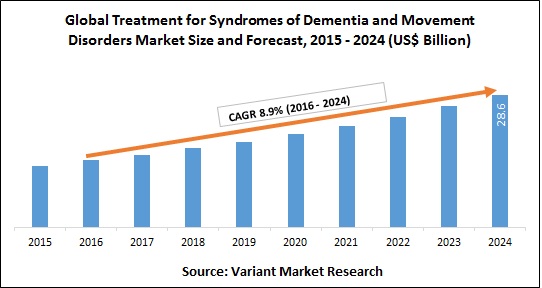
Rapidly increasing geriatric population, growing consumer awareness, and availability of various healthcare services such as psychological therapies, and homecare services are the key factors supporting the growth of the market. Moreover, increasing investments in R&D for further developments in drug discovery and rising occurrence of neurodegenerative disorders also drives the growth of the market. However, lack of proper management of these disorders and long approval time for drugs and devices may hamper the growth of the market. Furthermore, untapped markets, and various initiative programs to improve awareness level would provide several growth opportunities for competitors in the coming years.
The key takeaways from the report:
- The report will provide a detailed analysis of Global Treatment for Syndromes of Dementia and Movement Disorders Market with respect to major segments such as type, and geography
- The report will include the qualitative and quantitative analysis with market estimation over 2015-2024 and compound annual growth rate (CAGR) between 2016 and 2024
- Comprehensive analysis of market dynamics including factors and opportunities will be provided in the report
- An exhaustive regional analysis of Global Treatment for Syndromes of Dementia and Movement Disorders Market from 2015 to 2024 has been included in the report
- Profile of the key players in the Global Treatment for Syndromes of Dementia and Movement Disorders Market will be provided, which include key financials, product & services, new developments and business strategies
Effects of Dementia at Vienna
Dementia predominantly occurs in older people and, in view of the current demographic trend, has become a major issue for society and health policy. Currently around 130,000 people in Austria are suffering from some form of dementia and experts estimate that this number will double by 2050. Accounting for around 60 – 80% of cases, Alzheimer's disease is by far the most common form of dementia.
The City of Vienna guarantees its residents safety and the highest quality of life – this is especially true for the elderly and those in need of care. Since May 2017, MedUni Vienna has been participating in the European MEMENTO project, dedicated to the development of technical solutions to help sufferers and their relatives cope with forgetfulness on a day-to-day basis.
MEMENTO (Memory and Moments collected) is a joint project being conducted by eight centres in Austria, Italy and Spain. The MEMENTO programme is organized to help by reminding patients with mild dementia of everyday events, situations and places and help them to retain new information.
Alzheimer’s Congress 2019
11thWorld Congress on Alzheimer’s disease and Dementia was organized during March 20-21, 2019 at Holiday Inn Warwick Farm, Sydney, Australia with the support and contribution of the Organizing Committee Members.
Firstly we must thank you for trusting us and participating in Alzheimer’s Congress 2019, a global platform to discuss various important aspects of Alzheimer’s disease and Dementia.
There are infinite reasons to extend our gratitude to you for making the Alzheimer’s Congress 2019 outstanding conference. We couldn't have done it without your continuous support and believe towards our organization, which mutually made to achieve Alzheimer’s Congress 2019 a new heights in the field of Neuroscience.
The conference was marked with the attendance of young and brilliant researchers, business delegates and talented student communities representing more than 15 countries, who have driven this event into the path of success.
The conference was organized around the theme “Innovative approaches to defeat Alzheimer’s disease and Dementia”. The event implanted a firm relation of upcoming strategies in the field of Novel approaches and Developments in Neurological disorders and management of Alzheimer’s disease and Dementia with the scientific community. The conceptual and applicable knowledge shared, will also foster organizational collaborations to nurture scientific accelerations.
The conference proceedings were carried out through various Scientific-sessions and plenary lectures, of which the following participants were highlighted:
Gregory Yeh, University of Michigan, USA
Ramel A. Carlos, The Neurology Clinic, USA
Yuhong Man, The Second Hospital of Jilin University, China
Yoichi Takami, Osaka University Graduate School of Medicine, Japan
Akane Oyama, Osaka University, Japan
David Ali, Biogen, Australia
Stephane Verhaeghe, Biogen, Australia
The conference witnessed an amalgamation of peerless speeches, Keynote speakers, well-known researchers and delegates who enlightened the crowd with their enviable research knowledge and on various alluring topics related to the field of Neuroscience and various Neurological disorders by their fabulous presentations at the podium of Alzheimer’s Congress 2019.
Conference series LLC offers its heartfelt appreciation to all the Organizing Committee Members, Chairs and Co-chairs, Speakers, Students, Media Partners, sponsors and Editorial Board Members of Journal of Alzheimer's Disease & Parkinsonism, Journal of Neurological Disorders, Journal of Brain Disorders & Therapy, who supported the conference in every aspect for the awe-inspiring exhibition at the venue.
We are also obliged to various delegate experts, company representatives and other eminent personalities who supported the conference by facilitating active discussion forums. We sincerely thank our Organizing Committee Members.
So as a continuation of Alzheimer’s Congress 2019, we would like to heartily invite you to our upcoming 17th World Congress on Dementia and Alzheimer’s disease scheduled during October 29, 2020 in Vienna, Austria.
For 2020, we are expanding our focus towards all aspects of Dementia and Alzheimer’s disease and other neurological disorders and Research findings as treatment methods. Our organizing committee is gearing up for more innovative and explorative sessions to unleash the boundaries of the Dementia Congress 2020.
Your expertise and knowledge in the area of Dementia Congress 2020 will provide an opportunity to discuss and respond to a series of questions about the status of Dementia and Alzheimer’s disease.
We would like to organize this conference with your support to gather all the Neurologists in a single platform, hope we will be honoured with your support to organize Euro Dementia Congress 2020 in a grand level, your support will be the key of success for our next year conference.
We look forward to seeing your benign presence with active contribution and support to make this event successful once more.
Once again it’s our pleasure to welcome you to our upcoming Euro Dementia Congress 2020 conference.
Conference Highlights
- Dementia
- Alzheimer’s Disease
- Dementia and Ageing
- Vascular Dementia
- Dementia Nursing
- Neurodegenerative Diseases
- Neuropharmacology
- Alzheimer’s Pathophysiology
- Amyloid Protein in Dementia and Alzheimer’s
- Neurology and Neurosurgery
- Frontotemporal Dementia
- Dementia Lewy Body
- Parkinson’s Diseases
- Neurological Diseases
- Neurovascular Dysfunction and Neurodegeneration
- Neuroimaging Biomarkers
- Alzheimer’s and the Brain
- Dementia Care Management
- Alzheimer Disease and Cellular Mechanisms
- Alzheimer’s Clinical Trials and Studies
- Diagnostic Alzheimer
- Molecular Genetics and Biology of Dementia
- Neuro Oncology and Central Nervous System
- Novel Therapeutics Targets
- Recent Advancement in Treating Dementia
- Psychiatry Mental health disorders
To share your views and research, please click here to register for the Conference.
To Collaborate Scientific Professionals around the World
| Conference Date | December 11-11, 2020 | ||
| Sponsors & Exhibitors |
|
||
| Speaker Opportunity Closed | Day 1 | ||
| Poster Opportunity Closed | Click Here to View | ||
Useful Links
Special Issues
All accepted abstracts will be published in respective Our International Journals.
- Journal of Neuroscience & Clinical Research
- Journal of Alzheimers Disease & Parkinsonism
- Journal of Alzheimers & Dementia
Abstracts will be provided with Digital Object Identifier by


